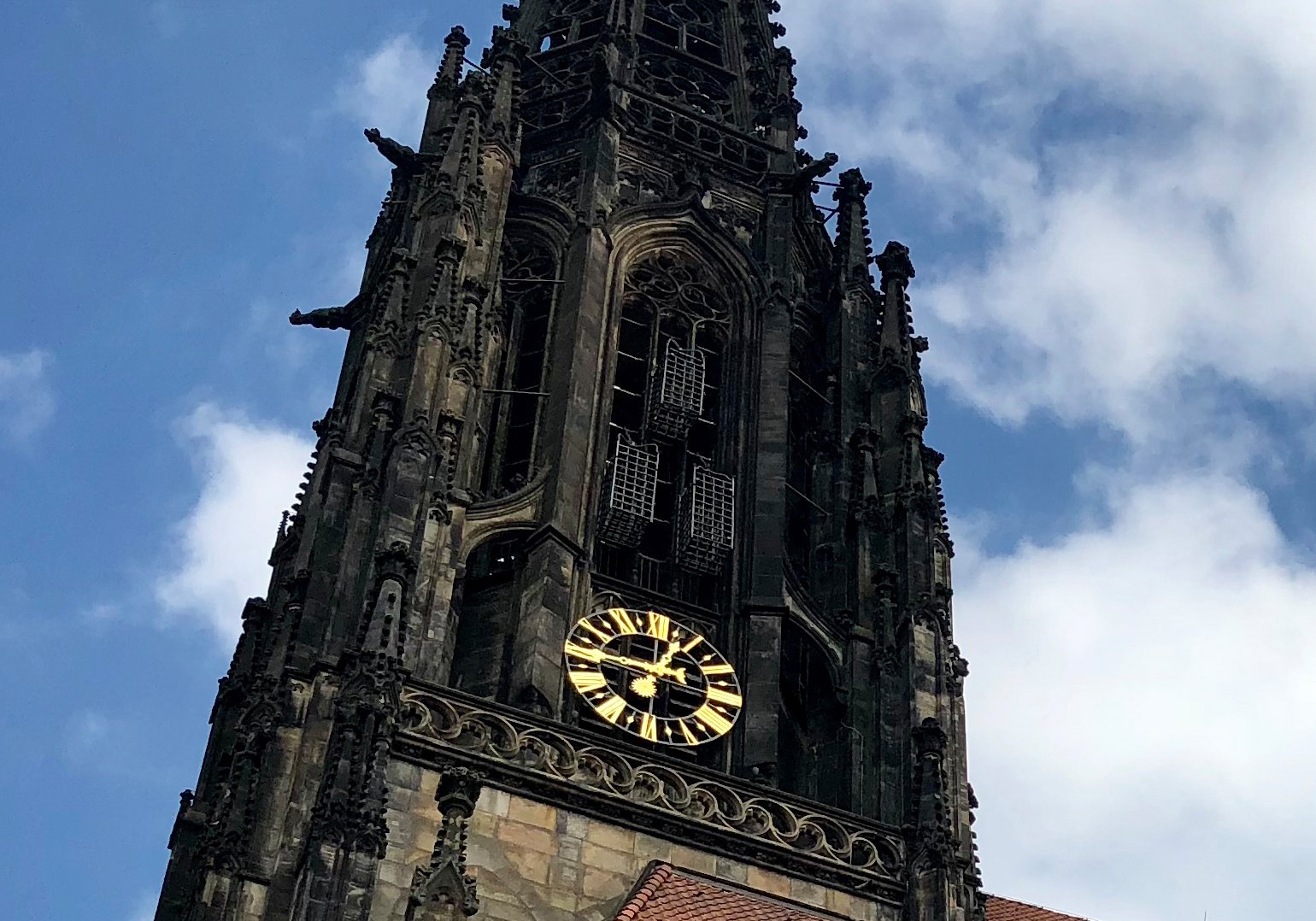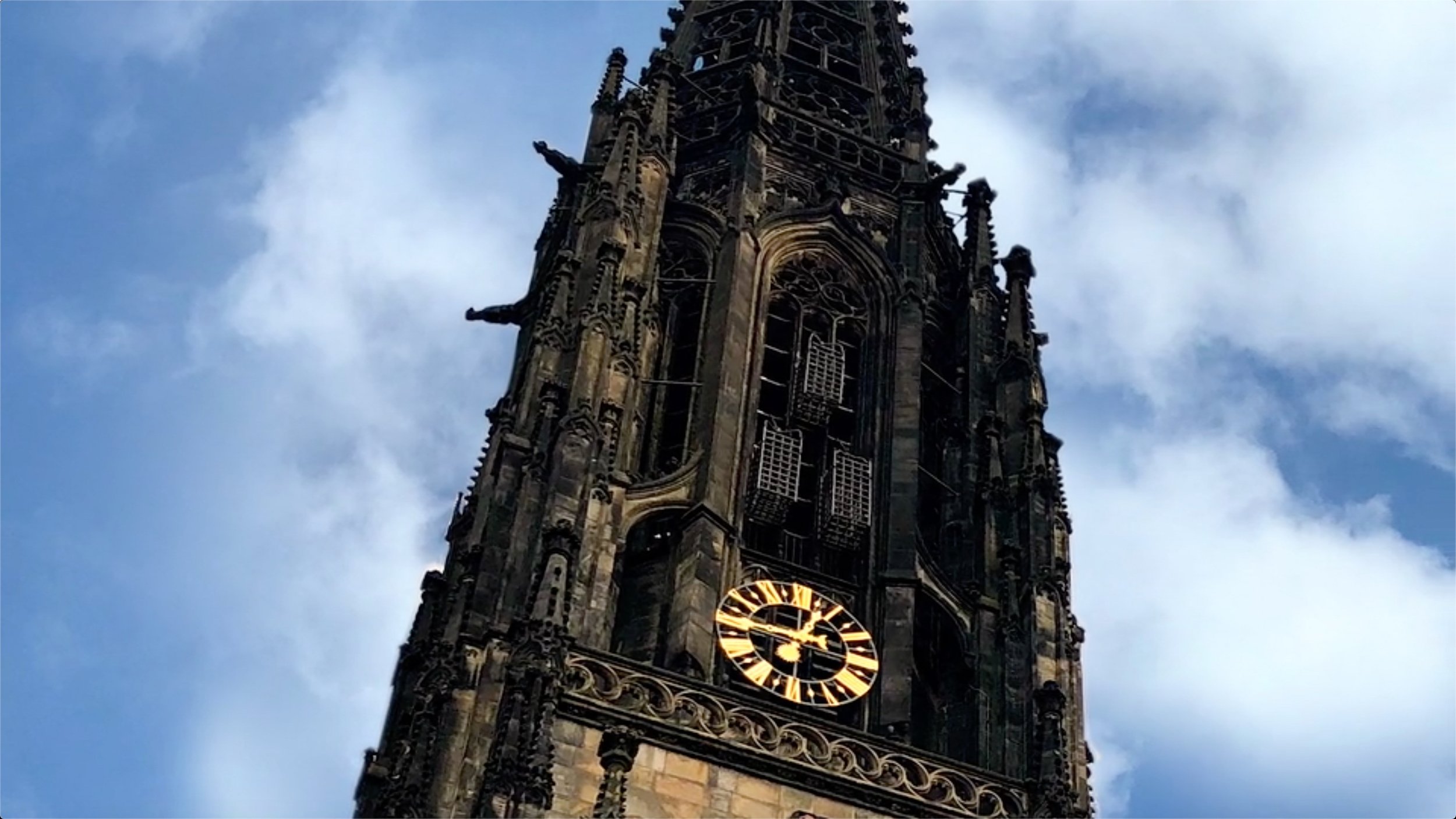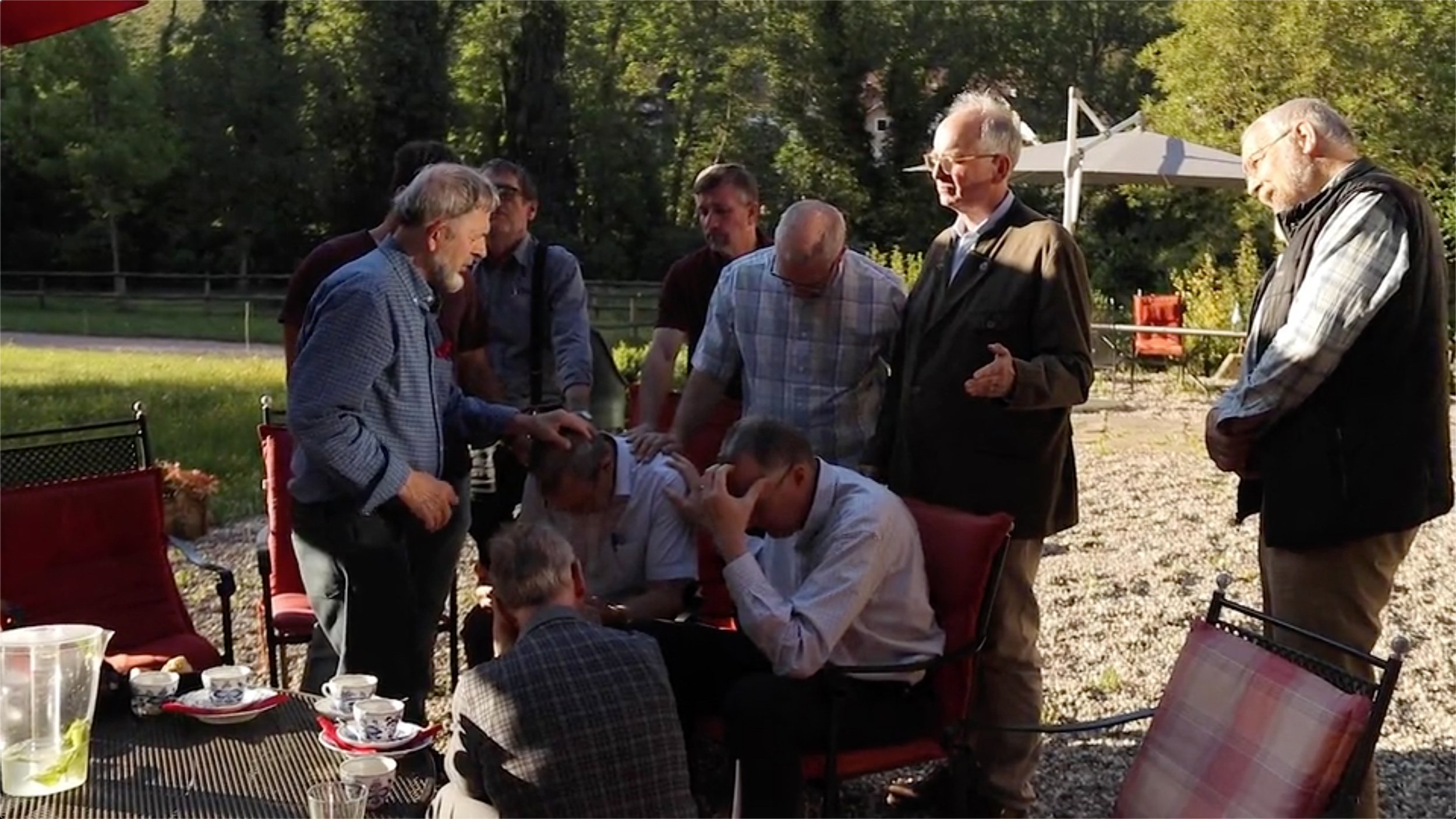Unity through Repentance: The Journey to Wittenberg 2017
Chapter 26
“Unless A Seed Fall Into The Ground”
You’ve read Chapter 26, and you want to learn about more seeds God has planted? Don’t worry, we got you!

Commissioning
The last morning, we had a commissioning service. We commissioned everyone present - and also those participating from afar, like you! - as ministers of reconciliation. As George Miley wrote afterwards, quoted in Ch. 26 of Unity Through Repentance:
During our closing service, we “commissioned” attendees to go and catalyze new initiatives of reconciliation in their own contexts. That service was led by seven clergy, representing Messianic Jews, Eastern Orthodox, Roman Catholics, German Lutherans, Anabaptists, Anglicans, and nondenominational Protestants.
Soli Deo Gloria!
I highly recommend that you watch this remarkable service in its entirety:
What will be the results of this commissioning? Only God knows, of course. But we believe that many new works of reconciliation and unity will come forth from that morning. And from right now, as you also receive the gift from God:
All this is from God, who reconciled us to himself through Christ and gave us the ministry of reconciliation: 19 that God was reconciling the world to himself in Christ, not counting people’s sins against them. And he has committed to us the message of reconciliation.
- 2 Corinthians 5:18-19
Chapter 26 of Unity Through Repentance tells several stories of what God has done after Wittenberg 2017 was completed.
This web page has a few more.
To God be the Glory!
The Cardinal’s Offer
Here is a video and a few photos that reference the story of the Bruderhof finding a home in Austria,
which is told in the last chapter of Unity Through Repentance.
From Chapter 26 of Unity Through Repentance:
On Saturday morning during the 2017 gathering, John Dawson called Ben Girod up to the podium. A distinguished and long-standing Amish leader from Montana, Ben had been appointed by the Anabaptists to respond to the repentance of the previous day. Ben’s words provided a capstone to the joy of repentance from Friday. He spoke as a father, releasing spiritual children to fully pursue God’s purposes.
You can hear John’s introduction of Ben, and Ben’s amazing words, if you skip to 10:33 of the video below (or just click this link https://youtu.be/9Af5OWzV-2c?t=633 )
Ben Girod prophesies: "The Anabaptists that gave their lives on European soil, their blood is crying out for this moment, their blood is crying out for healing and for restoration, that we find what they couldn’t find, that we accomplish what they couldn’t accomplish, and that is, coming together in one heart, and one mind, and one spirit."
Picture dating from 1900 (!) of the building outside Vienna that the Bruderhof purchased. Sent to me in an email from Martin Johnson of the Bruderhof, citing the original source as Landesarchiv NiederÖsterreich.
Modern-day drone photo of the new Bruderhof home in Austria
Modern-day drone photo of the new Bruderhof home in Austria
Herbrechtingen, Germany
The following story was sent to me by Wolfgang Geiger, an Evangelical Lutheran and a retired teacher. He lives with his wife Margret in the Eselsburger Valley in southern Germany.
I attended the 2017 gathering in Wittenberg. On the Friday of repentance towards the Anabaptists, Margret and I identified very strongly with the “victims” at first. Back in the early days we were viewed as outsiders, as “enthusiasts,” by the established churches. This is similar to how they responded to the Anabaptists.
But then God showed me that I had to take a stand as well as a representative of the Evangelical Lutheran church. For the last six years now, I have been the Chairman of the Church Congregational Council of the Evangelical Lutheran Church in our city of Herbrechtingen. God showed me I had a responsibility even for events before my time. I could and should ask for forgiveness, stand in the gap, where I and my church had sinned.
It was shortly after Wittenberg that about 25 leaders from 4 different Christian churches met to consider what joint actions and events we could put on together as Christians in our city to reach people. It was the first such meeting with representatives of the Catholic Church, the Evangelical Church of Germany, the City Mission (a non-denominational church) and the New Apostolic Church.
I asked God for wisdom and He clearly showed me the deep chasms of our past that had only been superficially covered, like a dangerous pit in the ground hidden by a thin layer of grass.
Still deeply moved by the experiences of reconciliation between the various groups that I had been able to share in shortly before this in Wittenberg, I dared to bring up our reciprocal guilt and the accusations from our past. I confessed my own prejudices and my negative thinking and speech. Several persons were immediately impacted. They responded by speaking of hurts such as discrimination on account of mixed marriages, which were mostly prohibited from the Catholic side. One woman had tears in her eyes as she told how she had suffered at that time.
I was then encouraged to discuss the divide in a public ecumenical church service at the New Year’s Reception in January 2018. In this church service, I was able to say that I was sorry for where I and where we as a church had hurt others. From our Evangelical Lutheran point of view, the Catholics were often thought of as hypocritical. In turn, from their point of view they were the only ones who held the true faith. The Chrischona Community, which is now the City Mission, were perceived as overly pious – both Catholics and Lutherans sometimes called them bigots. The New Apostolics were considered a cult.
I apologized, and was able to say that we have a common hope in Jesus, and that now I was pleased that we had this variety among churches. I got a positive response from several attendees after this service.
I pray and believe that something of the richly blessed days in Wittenberg continues to this day to have an effect in our city.
David & Kathi Peters
David & Kathi’s story is also told in the last chapter of Unity Through Repentance.
Quellen
In the final days of the 2017 gathering, many of the leaders were already mourning the loss of close connection and frequent gatherings that we shared on the International Council, which would be disbanding after the gathering was complete. Two of these were Ludwig and Cecily Benecke, the youngest members of our leadership team.
Towards the end of the meeting, Ludwig and Cecily approached George and Hanna Miley and asked for a meeting with them. “What we heard from you, we have never heard taught in Germany. We would love to learn more from you and think that Germany needs to hear the message that you are carrying. We want to hear more about discipleship to Jesus. Would you please consider discipling us?” In typical George fashion, he responded, “This is a very honoring request, Ludwig and Cecily. Let’s talk and pray about it some more.”
And with that conversation as the source, events were set in motion that eventually flowed into the creation of Quellen, a new ministry. Quellen itself means “source” in German, like the headwaters of a river. The vision of Quellen is succinctly expressed in three statements:
Healing the past
Transforming the present
Guiding the future
The multi-generational leadership team mirrors these three goals. The Mileys are in their 80s, though still remarkably strong – traveling to Germany often to meet with the Beneckes and lead discipleship retreats. Hubertus and Dorothea lead the household in Trieb, Germany where the ministry is headquartered. And Ludwig and Cecily, who also live in Trieb, are a young married couple learning to parent three young and very active boys, and a newborn daughter.
Healing the past … transforming the present … guiding the future. All of these components existed in the Wittenberg 2017 initiative. And now the Lord is giving them fresh expression in the new ministry of …





















